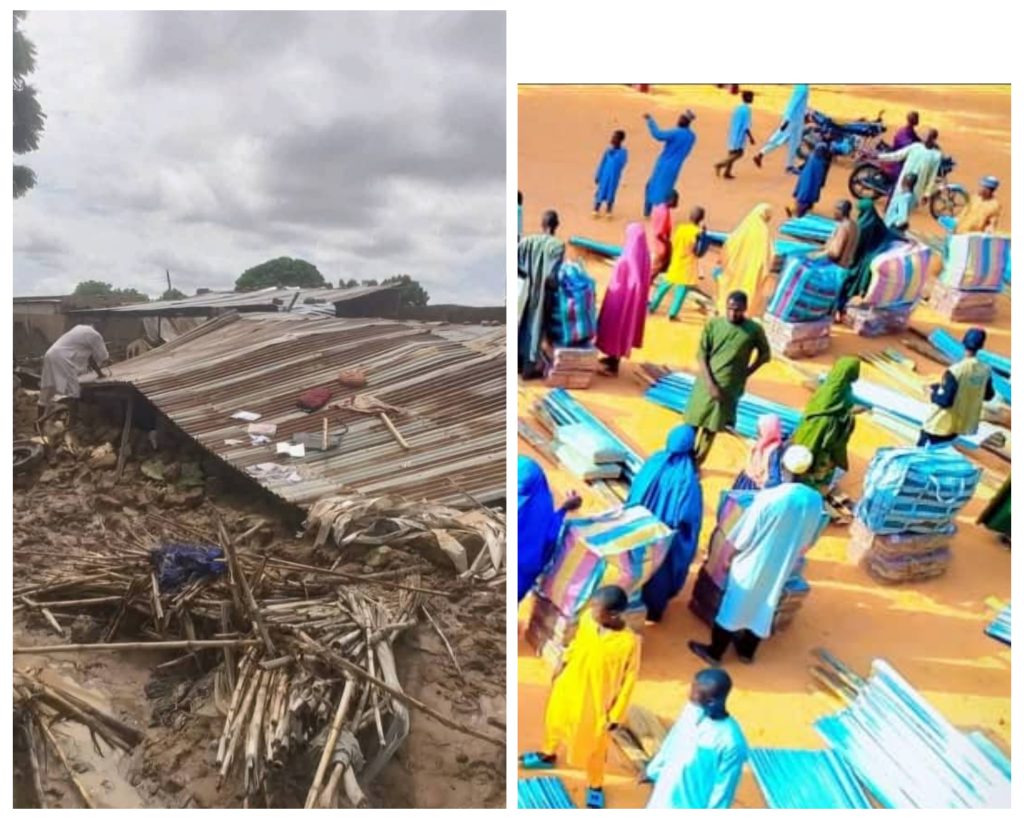Rakiya A. Muhammad
In Sokoto, Northwest Nigeria Floodwaters devastate the environment and livelihoods, turning familiar landscapes into scenes of chaos.
When natural calamities hit, they do more than cause immediate destruction—they undermine food security, health, and stability. The cycle of vulnerability deepens, making recovery a long and arduous process.
2025 floods’ devastation in Some Sokoto Communities
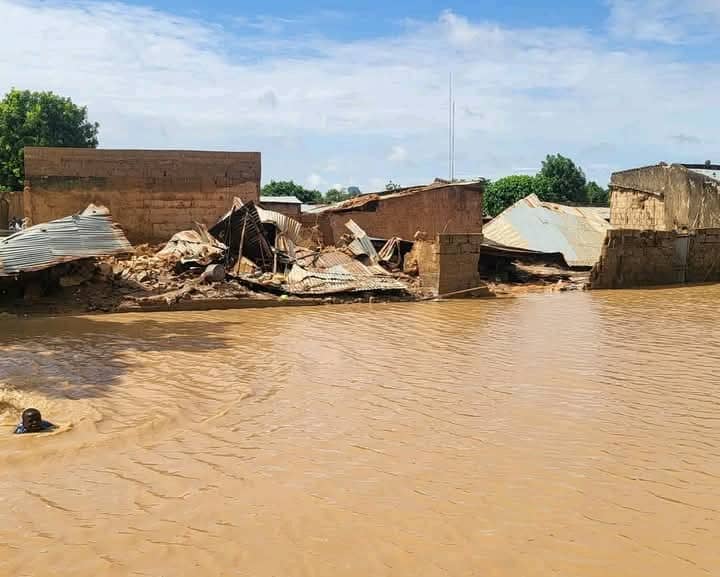
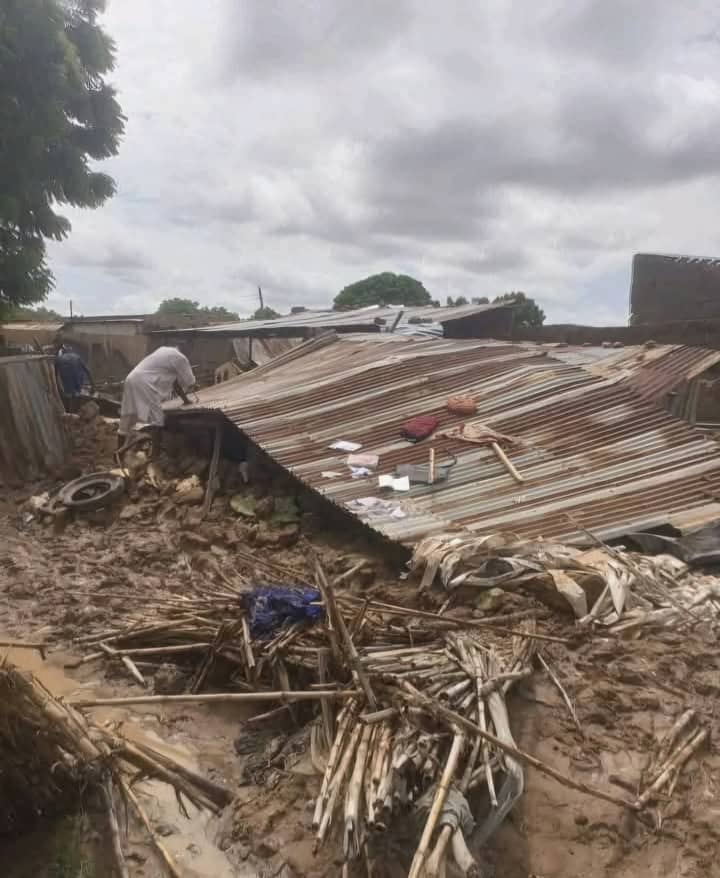
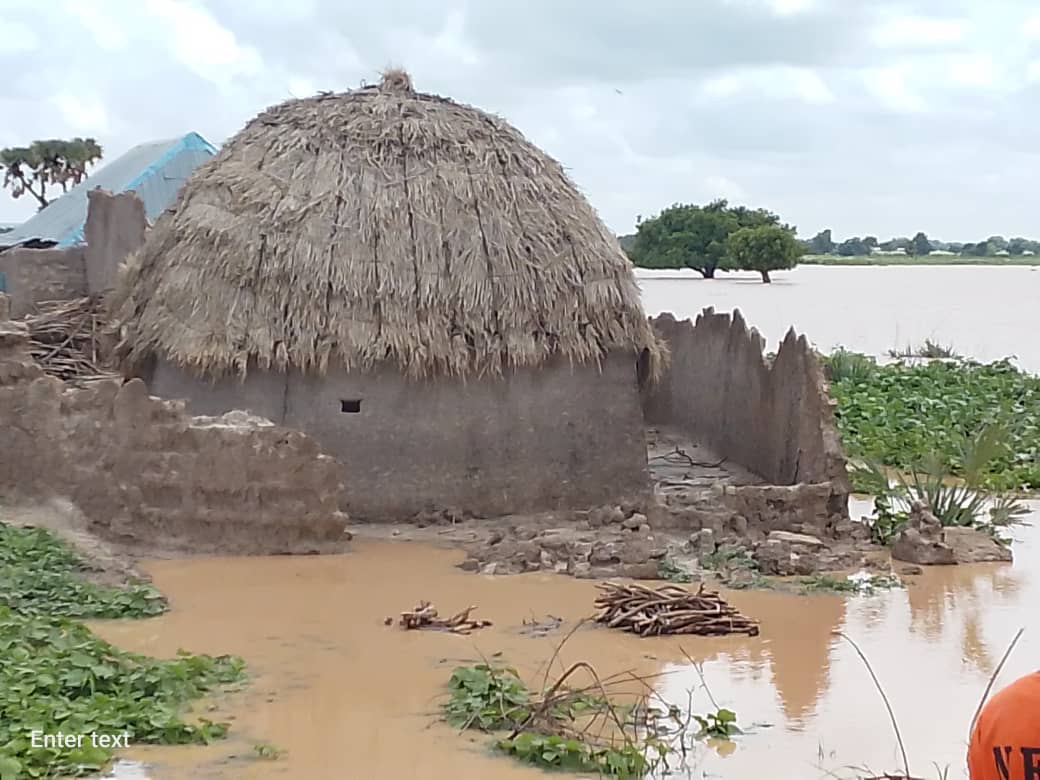

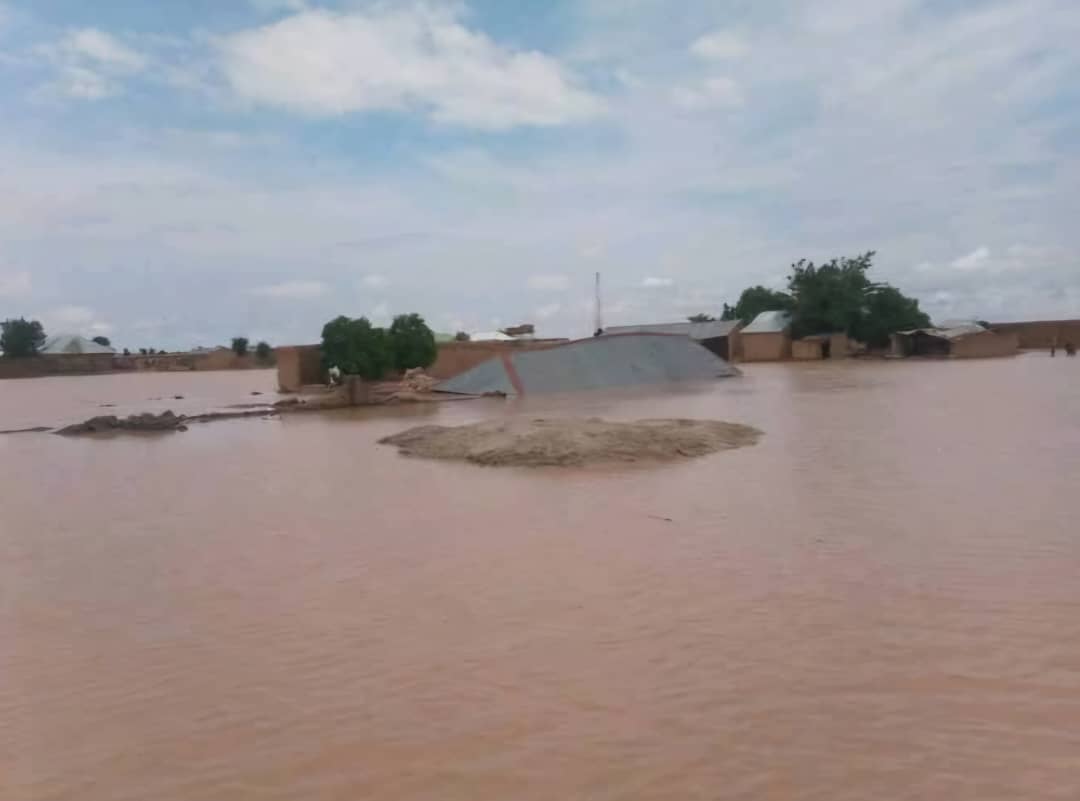
Action Against Hunger’s Interventions in Yabo, Shagari
In times of crisis, hunger is more than just the absence of food—it’s a symptom of deeper vulnerabilities. Timely humanitarian interventions are crucial; distributing relief materials helps meet urgent needs and prevents further deterioration of health and nutrition.
Humanitarian organisation- Action Against Hunger recently provided vital support to some households affected by the recent flood disaster in Yabo and Shagari local government areas of Sokoto State.
The relief package included shelter kits containing two bags of 50kg Sokoto cement, six pieces of 2×4 timber wood, one bundle of corrugated zinc roofing sheets, a pack of cap nails, and one piece of tarpaulin.
Also, each household received non-food item kits comprising two mattresses, one blanket, a mosquito net, a 20-litre bucket, a 20-litre jerrycan, a 10-litre jerrycan, two plates, two spoons, one knife, fourteen pieces of soap, a packaging bag, two cooking pots, a torchlight, a cup, and one pack of reusable pads.
Shelter, Foundations of Stability
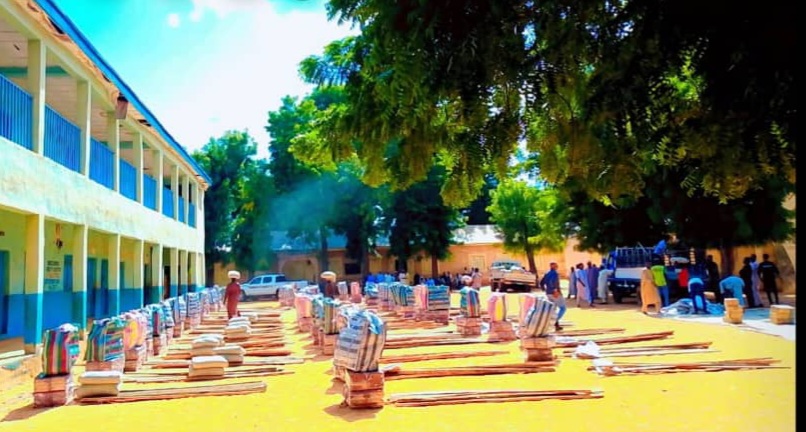
Disasters often destroy homes and livelihoods, forcing families into displacement and hunger. Providing durable shelter materials is more than immediate aid; it’s a proactive step to reduce future vulnerabilities, enabling families to regain stability and begin rebuilding their lives.
Restoring Daily Routines, Dignity
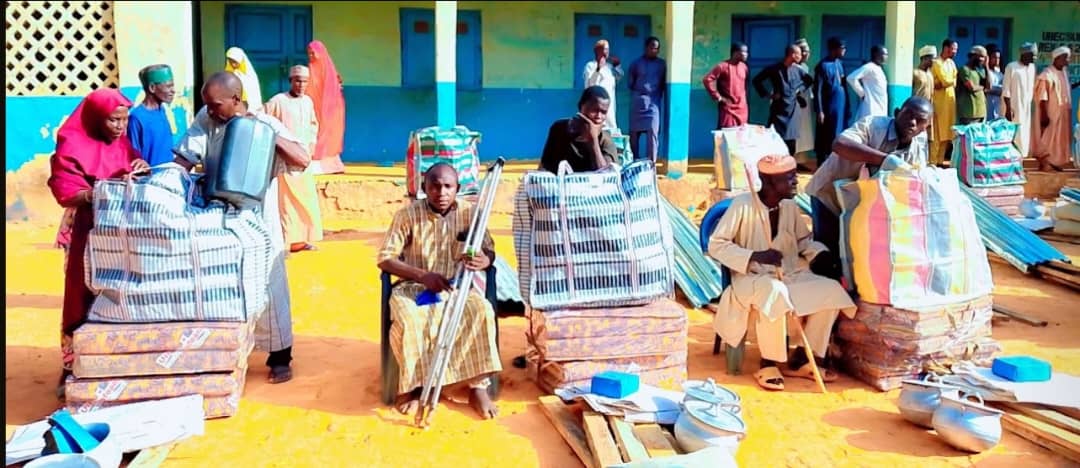
Access to basic household essentials helps families regain their daily routines, addressing some of the underlying factors that perpetuate vulnerability and hunger.
Promoting Health. Preventing Disease
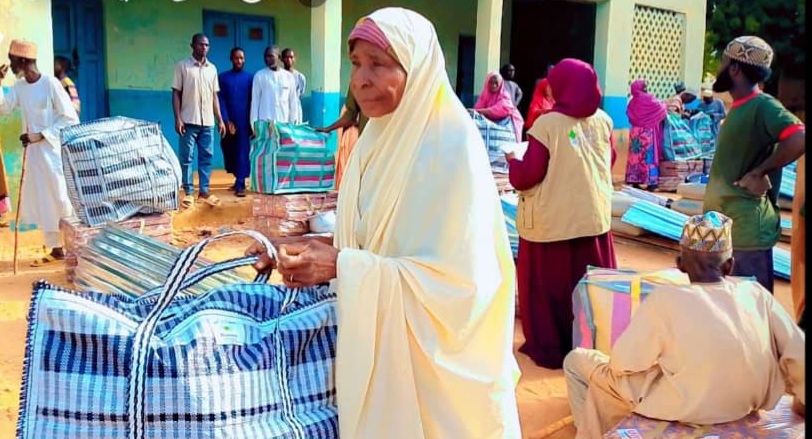
Health is intertwined with nutrition. Preventing disease through sanitation and protective measures is vital to breaking the cycle of hunger and illness, especially in disaster-affected areas
Building Resilience for the Future

With repair materials, families reinforce their homes against recurrent shocks, making their shelters more resilient.
A Holistic Path to Food Security
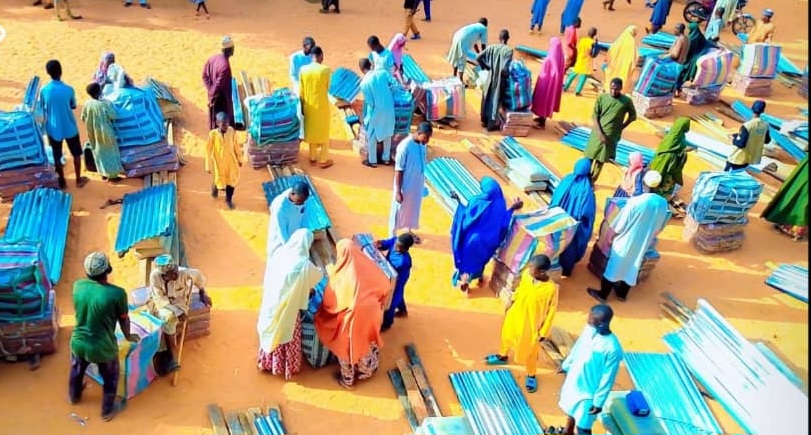
By integrating shelter, health, sanitation, and livelihood support, the humanitarian effort seeks to conquer hunger at its roots—building resilient communities prepared for the challengesahead.
Hunger is complex, rooted in vulnerabilities that require a comprehensive response. Through a multisectoral approach—addressing immediate needs while investing in long-term resilience— empowers communities not just to survive, but to thrive beyond crises. Conquering hunger begins with addressing its roots, and with an integrated strategy, hope for a hunger-free future becomes a reality.


